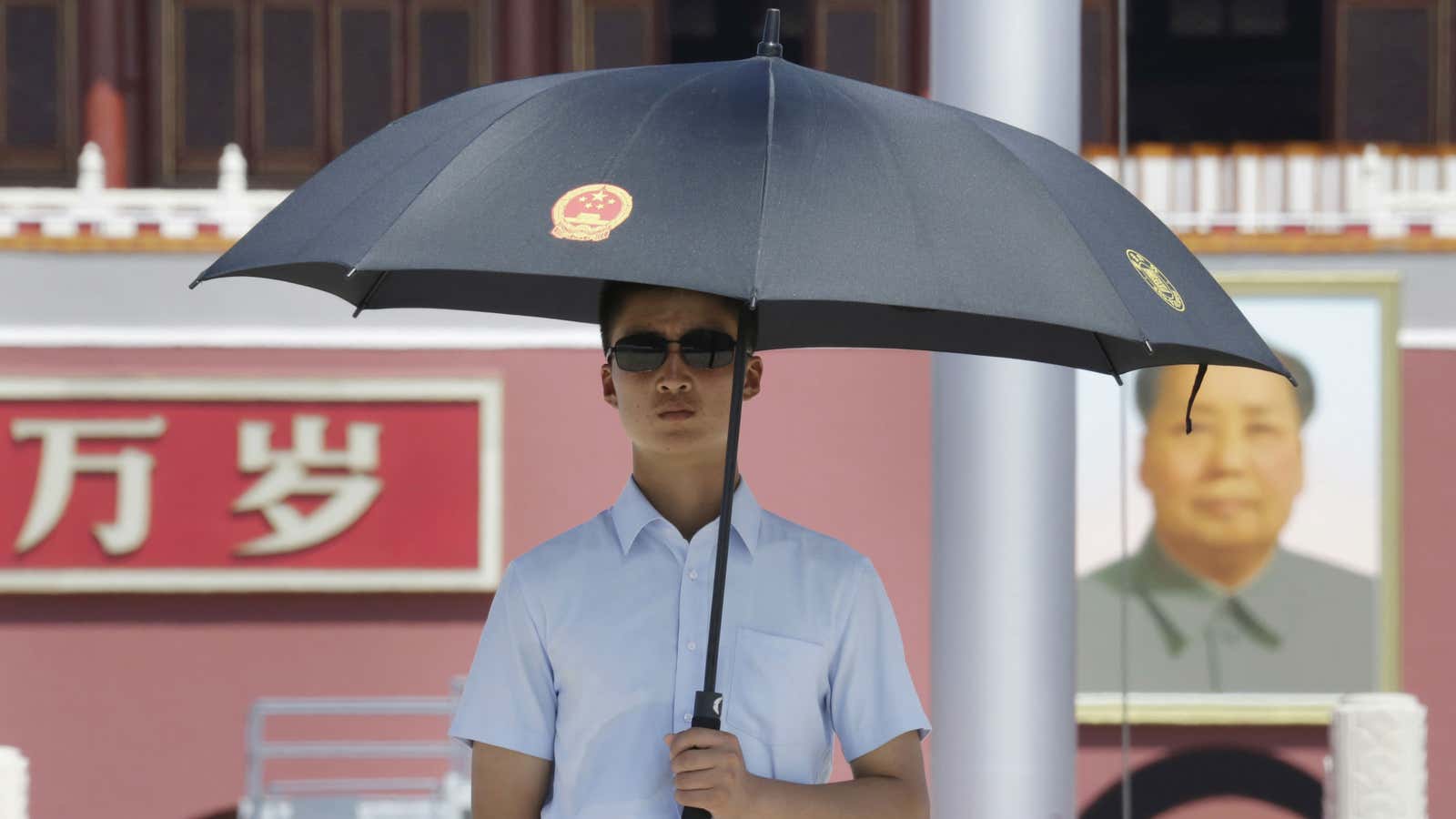There are plenty of complaints ahead of China’s Sept. 3 WWII victory march plans. International critics are worried the military parade could whip up nationalism in the country, while many Chinese citizens are irritated by tough government controls rolled out ahead of the commemorative events.
How is Beijing’s trying to counter this opposition? With far-reaching censorship of complaints, and new attempt to encourage positive online discussion about the parade in China.
Just days ahead of China’s celebration of the Allied forces victory in WWII, a discussion thread titled ”Safeguard the parade with your fingertips” (link in Chinese) is burning up the Chinese micro-blogging site Sina Weibo. After a self-proclaimed Communist Party member started the discussion last week, it has attracted over 28 million views.
“Here I solemnly appeal to the cyber soldiers: Take your goose-steps, safeguard the parade with your fingertips, and be participants of the cyber parade,” writes (link in Chinese) Qianjunke, whose name means a man with massive strength in Chinese.
The parade will “hold corrupt officials in awe” and “boost the whole nation’s confidence,” he writes, calling on Chinese netizens to show their patriotism using their fingers—which means posting positive tweets or comments related to the parade, he explains.
Suddenly, posts marked “Safeguard the parade with your fingertips” are spreading quickly on Weibo. They come not only from ordinary bloggers, but from official accounts from party agencies, police stations, and state media.
In Qianjunke’s case, if he’s not from China’s “50 cent party,” the Internet users paid to post pro-government comments, he is certainly one of the many “Bring-your-own-grainers,” or ziganwu, on China’s Internet. Unlike the government-hired internet commenters, the ziganwu support the government unconditionally, and ask for no payment in return.
Meanwhile, “Parade” has been at the top of a list of censored search terms on Sina Weibo for several days running, according to Free Weibo, which copies and republished censored Weibo posts. One of the censored Weibo post circulating shows a photo of a notice, allegedly from authorities in the Zhaojialou community situated along the march route, that tells its residents to lock all of their windows and “do not peek through the windows at the parade.”
Some argue that positive reports of the parade are crucial for China, because it will give the government a chance to distract the public’s attention from a slowing economy. The parade could also distract the public from recent stock market turmoil and a series of chemical explosions in Tianjin that at least killed 150 earlier this month.
As censors get to work, China’s social media is reflecting mostly positive views of the parade. Leaked censorship instructions also show that the Chinese government has ordered all domestic websites to review news and comments related to the parade, to guarantee nothing will attack the Communist Party or the army in the coming days.
